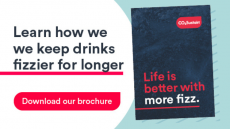Red Bull: 'All future claims will be medically and/or scientifically supported'
Red Bull offers $13m to settle false advertising lawsuit; 'No way judge will approve this', says attorney
Along with other F&B giants which have recently sought to settle false advertising cases (Kashi, Trader Joe's, PopChips, PepsiCo), Red Bull has not admitted liability, and says it is "prepared to vigorously defend its marketing claims if the litigation proceeds.”
However, it is also keen to avoid the “uncertainty, risks, expenses and time investment” of protracted litigation.
Marketing and labeling changes: ‘All future claims will be medically and/or scientifically supported’
Under the terms of the proposed settlement, which has been agreed by the plaintiffs and Red Bull but is still subject to approval by the court, consumers who purchased any Red Bull product in the US between January 1, 2002 and the settlement date would be entitled to $10 cash reimbursement or $15 worth of Red Bull products.
Red Bull has also voluntarily "withdrawn or revised marketing claims challenged by the plaintiffs", although it doesn't specify which ones (multiple claims are referenced in the complaints).
“Red Bull believes that its marketing and labeling directed at United States consumers have always been entirely truthful and accurate," said the firm in court papers filed on July 31. "Red Bull further confirms that all future claims about the functional benefits of its products will be medically and/or scientifically supported.”
Attorney: Settlement could be attempt by Red Bull to pre-empt future consumer fraud and product liability litigation
One food & drug law attorney told FoodNavigator-USA he could not recall a settlement of this magnitude in the food & beverage civil litigation arena.
But in context, the sum was arguably “comparatively paltry” given that it could be regarded as an attempt by Red Bull to pre-empt consumer fraud or product liability lawsuits it may face down the road, he claimed.
He added: “This is all about the lawyers getting paid ($4.5m), while Red Bull tries to forestall all actions by other prospective plaintiffs.”
‘No way is the Judge going to approve this’
Given that the plaintiffs allege that Red Bull has misrepresented the safety as well as the functionality of its products - something which Red Bull vigorously denies - it also seemed odd that class members would be offered samples as well as refunds, he added.
Meanwhile, the fact that the settlement does not spell out which claims Red Bull is dropping is unusual, he said, noting that the firm would likely have altered its marketing regardless of this case in anticipation of legal threats from other quarters - including states attorneys - which have already sued rivals Monster and 5-Hour Energy in recent months.
“If you can say that you’ve already stopped the claims that are being challenged in these matters, then you’ve got sort of a free pass.
“Add on to this the fact that if the State attorney generals sue, they will be suing on behalf of their citizens to get restitution and injunctive relief. If Red Bull has already paid a settlement that purports to bind all Red Bull purchasers for $13m, then maybe these State AGs get nothing for their citizens. It’s an argument.”
He added: “No way is the judge going to approve this… I suspect that the lawyers in any current or pending product liability cases will also weigh in against the settlement.”
CSPI attorney: One thing immediately jumps out at me, and it is fatal to the settlement
Stephen Gardner, director of litigation at the Center for Science in the Public Interest, added: "One thing immediately jumps out at me, and it is fatal to the settlement."
In short, he said, "it would release all claims by any Red Bull purchasers, not just the claims covered by the lawsuit. As a principle of class settlements, an overbroad release is always a negative. But here, although the settlement says it does not release “personal injury claims unrelated to the marketing or labeling of Red Bull products,” that does not suffice, because the marketing and labeling of Red Bull products will almost invariably be relevant to a personal injury claim."
Class counsel should never have agreed to it
He added: "I’ve served as an expert witness providing testimony about the adequacy of class settlements in perhaps 20 cases. I would testify that this over breadth of the release is fatal to the settlement. It may be clever lawyering by Red Bull counsel but class counsel [ie. the plaintiff's attorneys] should never have agreed to it."
Plaintiff: Red Bull doesn’t give you any more wings than a cup of coffee
Benjamin Careathers filed his lawsuit against Red Bull in the Southern District of New York in January 2013, while David Wolf and Miguel Almaraz filed a near identical suit in February in the Central District of California. The two cases were later consolidated in New York.
Careathers argues that Red Bull - an 8.4oz can of which contains 80mg of caffeine, plus taurine, glucuronolactone, B vitamins, sucrose and glucose (click HERE) - is falsely marketed as delivering functional benefits above and beyond what consumers might obtain from “a simple cup of coffee or a caffeine pill”, thereby inducing shoppers to pay over the odds for a product that does not deliver on its promises.
“The Red Bull defendants prey upon consumers by promising that, among other things, ‘Red Bull gives you wings’ by proving a mixture of ingredients that when ingested, significantly improve a consumer’s physiological and mental performance beyond what a simple cup of coffee or caffeine pill would do," he alleged.
Plaintiffs: 'Red Bull's advertising and marketing is not just puffery but is instead deceptive and fraudulent'
Citing a series of clinical studies showing that the benefits attributed to energy drinks such as Red Bull are likely derived from caffeine alone, and not their “unique” formulas, he added:
“There is no genuine scientific research and there are no scientifically reliable studies in existence that support the extraordinary claims of defendants that Red Bull branded energy drinks provide more benefit to consumers than a cup of coffee.
“Such deceptive conduct and practices mean that defendants’ advertising and marketing is not just puffery but is instead deceptive and fraudulent and is therefore actionable.”
A Red Bull spokeswoman told FoodNavigator-USA: "Red Bull settled the lawsuit to avoid the cost and distraction of litigation. However, Red Bull maintains that its marketing and labeling have always been truthful and accurate, and denies any and all wrongdoing or liability. Per your question, we will continue to use [the marketing slogan] 'Red Bull Gives You Wings'."
*The cases are: Benjamin Careathers v. Red Bull North American Inc. et al, 13-cv-00369; and David Wolf et al. v. Red Bull GmbH et al.,13-cv-08008.










